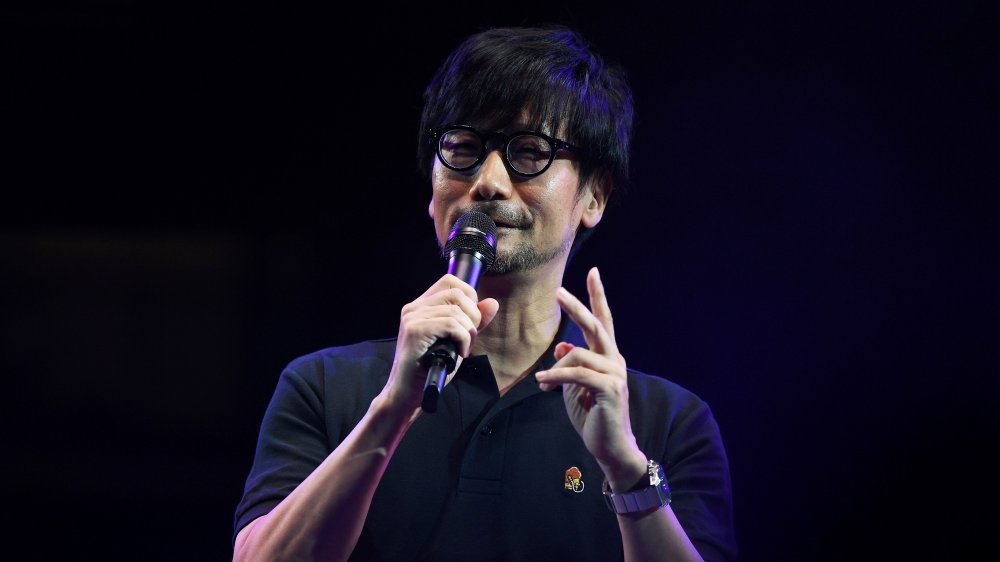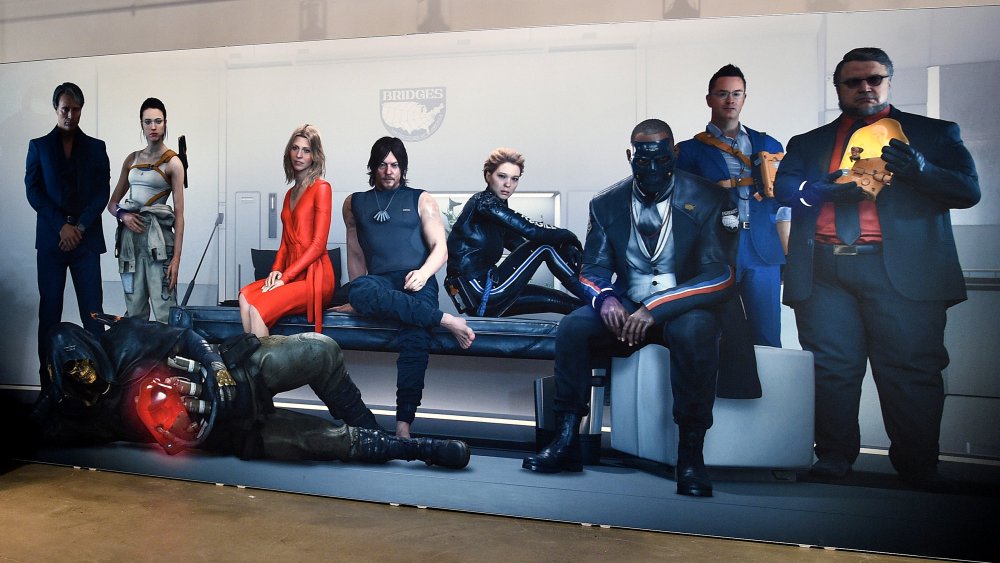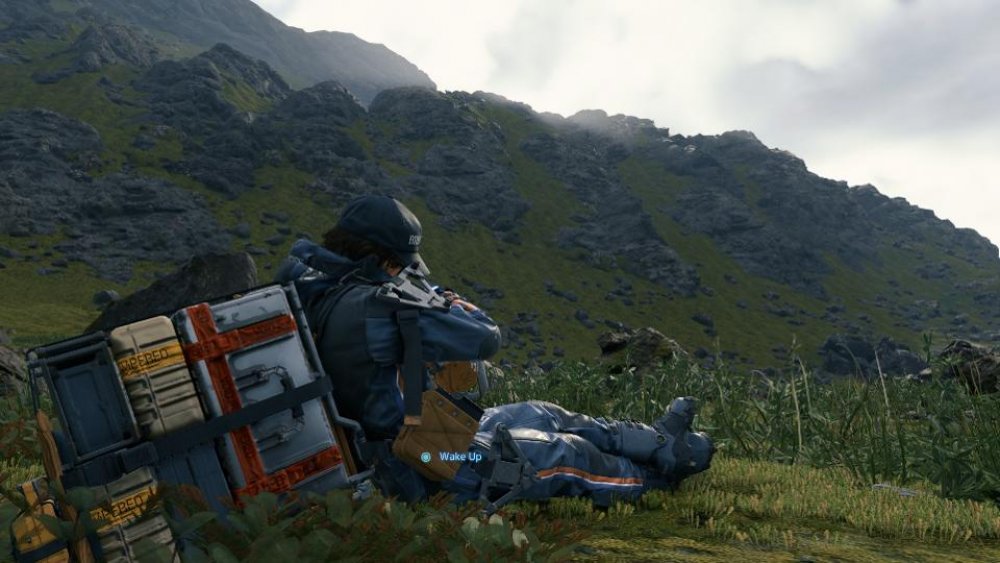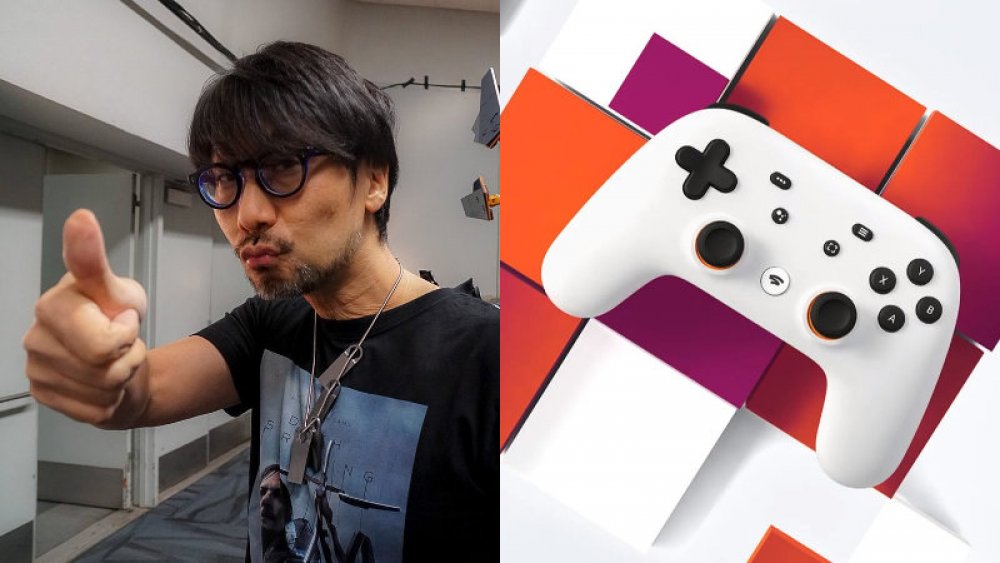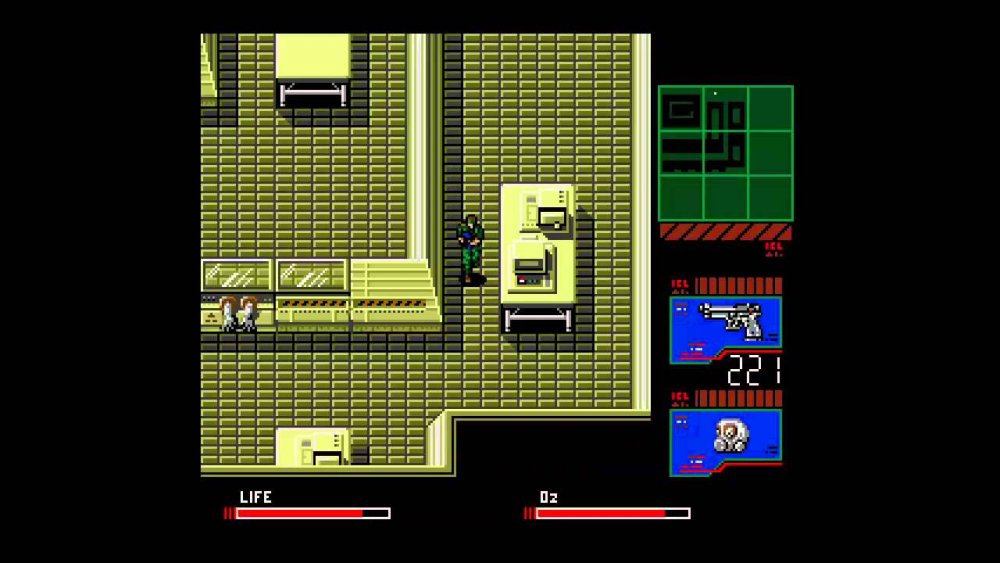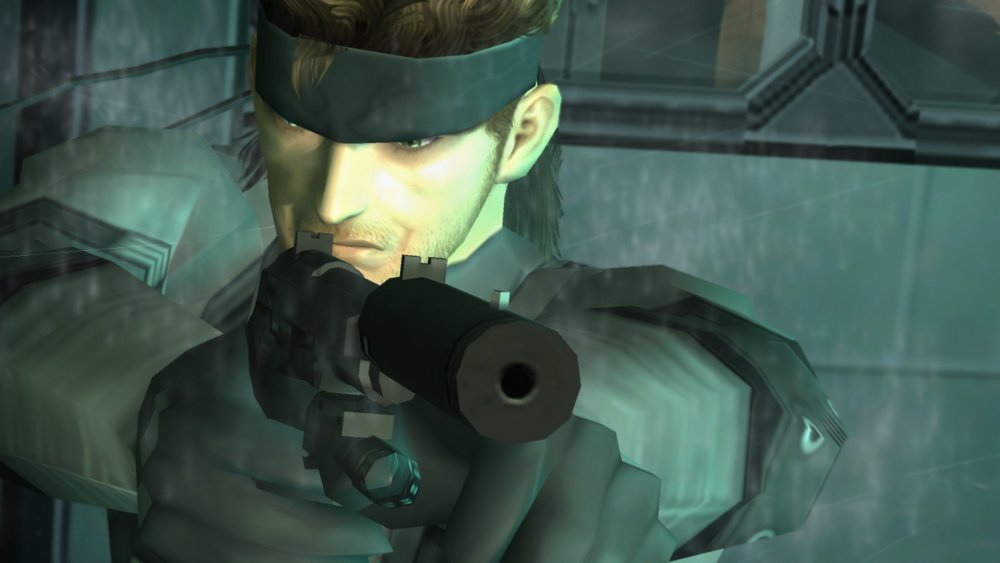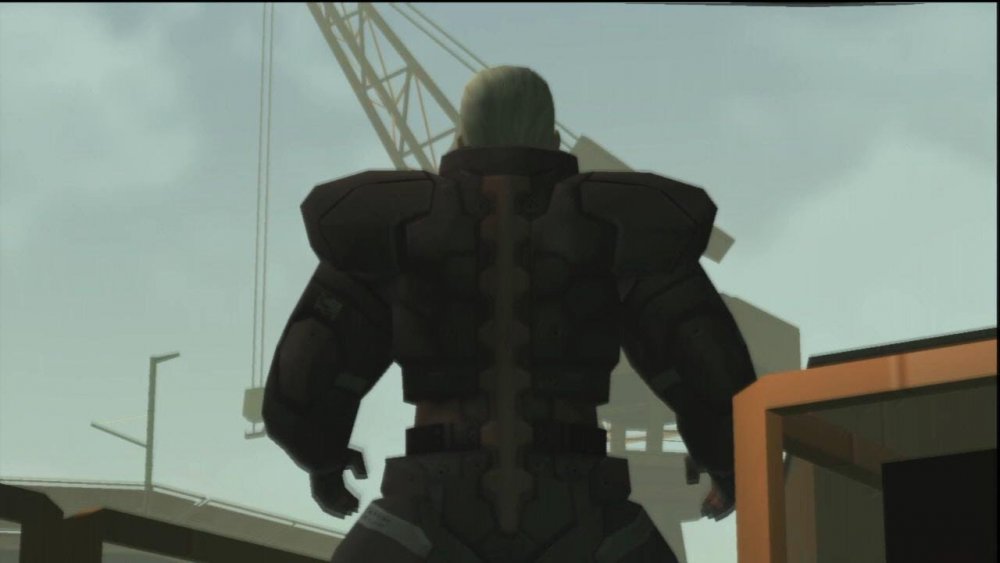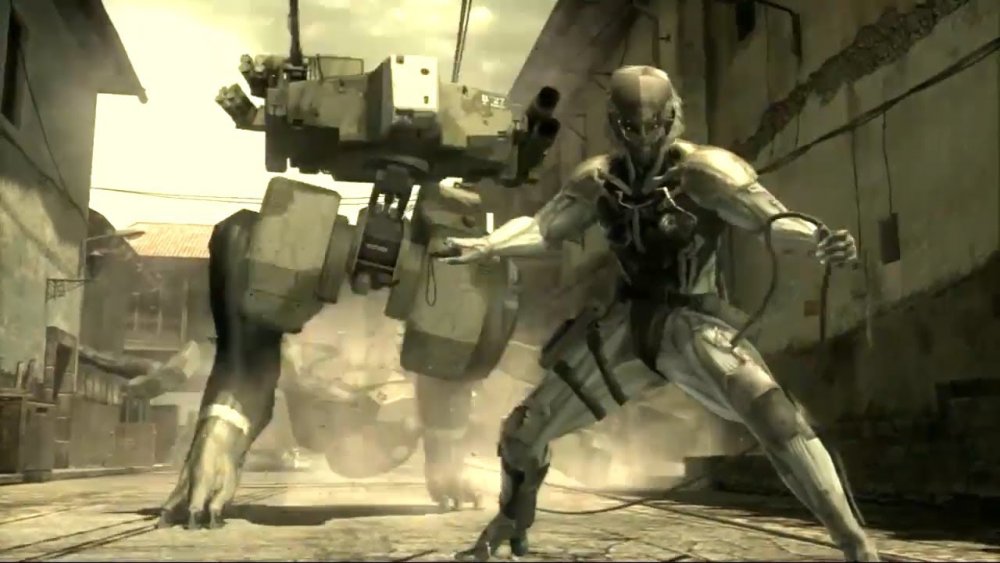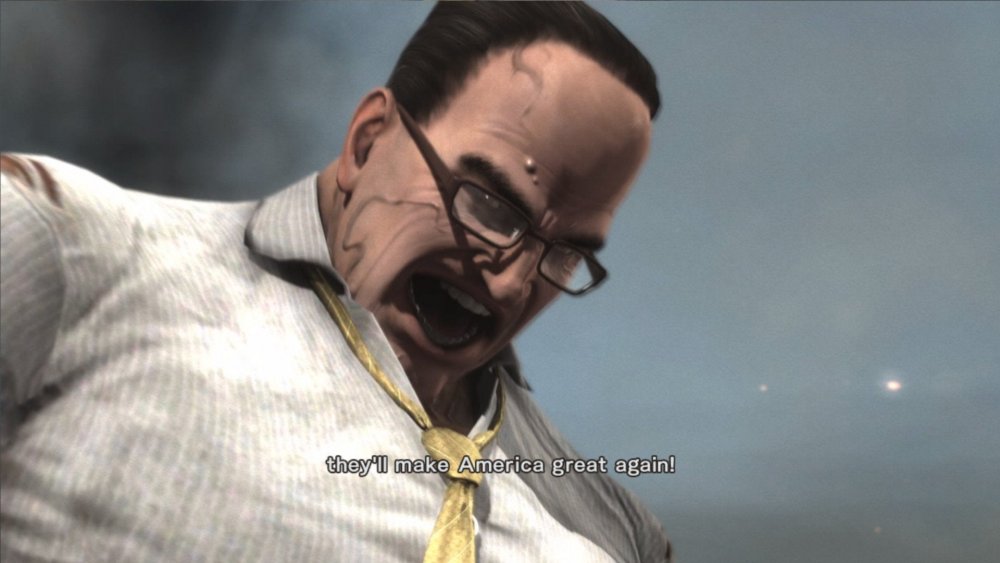Every Time Hideo Kojima Predicted The Future
In the world of Hollywood, directors and the unique voices they bring to their films are recognized by both hardcore enthusiasts and casual theater-goers. When it comes to video games, however, creative directors rarely share that same kind of fame or celebrity status. Most video games are known better for the development studios or publishers behind them than they are for the person at the helm of it all. Rare exceptions exist, however, and arguably the biggest outlier of all is none other than Hideo Kojima.
A well-known auteur in the world of video games, Kojima has spent years crafting uniquely cinematic and insightful games and worlds. His titles have a reputation for their sharp mechanics, memorable music, and iconic characters. Many of his video games also contain shocking and somewhat dystopian elements that have the uncanny habit of predicting aspects of the near future. Here are just a few times Hideo Kojima's fiction has come to pass as reality.
Death Stranding predicted an isolated America
Kojima felt he had nothing and no one around him when he left Konami and turned Kojima Productions into an independent studio. He channeled that loneliness into his first project since breaking with the publisher he had called home for nearly 30 years. Death Stranding, a massive, Sony-published, open-world action title, launched in November 2019 after years of sparking excitement, confusion, and in-depth fan theories.
Death Stranding encompasses a broken, post-apocalyptic version of America in which the remnants of society are disconnected from one another. There's little trust or camaraderie, and you experience an overwhelming sense of isolation as you attempt to piece the country back together. "The world is beautiful, but you're small, just a tiny speck. You feel hopeless and helpless and powerless," Kojima told Time.
While some gamers struggled to process Kojima's vision of a post-apocalyptic America full of shut-ins and invisible horror, this is something real-world Americans have grown all too familiar with. The quick and deadly spread of the coronavirus has already placed other parts of the world on complete lockdown, and now states across the U.S. have begun implementing stay-at-home orders that mirror aspects of the situation Kojima presented through Death Stranding just last year.
Death Stranding also predicted society's savior: the delivery person
In Death Stranding, you control Sam Porter Bridges, a boots-on-the-ground courier who spends his days delivering packages to people across America who refuse to leave their homes. In this world, couriers are the only individuals brave and qualified enough to traverse the outdoors and bring people together by providing their wants and needs. Making a delivery in-game involves dropping packages off at doorways while a hologram thanks you, as few people want to interact in-person.
Today, delivery people and couriers are the lifeblood of a society afflicted by COVID-19. Delivery services are enacting "zero contact" drop-off services that are all too similar to Death Stranding, and delivery people line the streets as the only individuals willing to venture outdoors to retrieve vital goods. Even other aspects of today's society echo Death Stranding, like a father crafting a portable baby-pod to protect his newborn when going outside.
Kojima predicted Google Stadia way back in 2010
Not all of Kojima's predictions about modern society are so grim. One prediction in particular didn't even come from one of his seemingly prophetic video games. Instead, this foretelling unfolded during a press conference back in April 2010.
"In the near future, we'll have games that don't depend on any platform," said Kojima. "Gamers should be able to take the experience with them in their living rooms, on the go, when they travel – wherever they are and whenever they want to play. It should be the same software and the same experience."
Some viewed Kojima's assertion as far-fetched, especially with services like OnLive barely scraping by or functioning as promised. Today, though, that console-less future is entirely plausible. Services like Google Stadia and Nvidia GeForce Now make it possible to play high-end games on any kind of device you own (thought not without their own share of issues), while upcoming platforms like Microsoft's project xCloud promise similar functionality for phones, tablets, and everything in-between.
Metal Gear predicted the adoption of algae-based fuel
While most of Kojima's predictions and eerily accurate premonitions were set in stone during the 21st century, one of the earliest instances of his fiction becoming reality comes from all the way back in 1990. In Metal Gear 2: Solid Snake, Kojima presents a world entirely devoid of natural oils. People across the nation fight over the last remaining pockets of gasoline, but the genetic modification of microalgae Botryococcus braunii leads to the accidental invention of OILIX, an algae-based fuel that powers all the vehicles and machinery in the world.
Back in 1990, a fuel made from algae seemed like a far flung dream. Though research centered on using algae to create biodiesel surfaced in 1978, It wasn't until 2012 that the fictional fuel from Metal Gear 2: Solid Snake became reality through first retail sales of algae-derived fuel. Today, nations are beginning to mandate the use of artificial fuel, and vehicles are being developed that are optimized to run on Biodiesel B20 and its ilk.
Metal Gear Solid 2 warned about fake news, social media, and data manipulation
An incredibly prophetic moment from Metal Gear Solid 2: Sons of Liberty offered commentary on social media and data manipulation that seems to gain more relevance with each passing year. Back in 2001, a pivotal scene showed characters discussing elements of the way the world communicates that some believe mirrors the perils of modern internet culture.
Fans have pointed to quotes like, "in the current, digitized world, trivial information is accumulating every second, preserved in all it's triteness" to sum up the state of constantly moving social media. "Everyone withdraws into their own small gated community, afraid of the larger forum. They stay inside their little ponds, leaking whatever "truth" suits them into the growing cesspool of society at large," asserts another character
Players have drawn parallels between these quotes and the rise of alleged online echo chambers and fake news. The idea of manipulated truths is explored in another quote, where a character says "the digital society furthers human flaws, and selectively rewards development of convenient half-truths." The internet was just establishing a foothold in most households in 2001, but today this dialogue may be more relevant than ever.
Metal Gear highlighted the behind the scenes manipulation of the financial elite
Much of the Metal Gear series transforms real-life paranoia into powerful truths presented in an altered but all-too-familiar version of America. Nothing quite encapsulates that better than The Patriots, an incredibly important and constantly prevalent group within the narrative of the franchise.
When first introduced in Metal Gear Solid 2: Sons of Liberty, it was revealed that the group was made up of some of the most rich and powerful people in the world from numerous countries like Russia, the U.S. and China. By coming together, this group took control of America in secret, influencing the American Congress and the entire nation, even staging elections with rigged results.
An Edward Snowden style whistleblower has not emerged to confirm that a secret society like this exists. Still, recent world events like the alleged relationship between Donald Trump and Vladimir Putin and the multi-million dollar presidential campaign of Michael Bloomberg have certainly spawned their fair share of paranoia.
Metal Gear detailed the rise of drone warfare
Back in 2001, unmanned flying cameras were a constant threat in Metal Gear Solid 2: Sons of Liberty, as floating camera devices constantly tracked the movements of protagonist Raiden and sounded alarms whenever they spotted him. The threat of always-watching drones only existed in the game, but today, drones are present at many levels of society. People use them as cute outdoor toys, invasive spying devices, and unmanned delivery vehicles. They've become such a nuisance to real-life people that certain parts of the world have begun drafting legislation banning or prohibiting their unlicensed use.
Of course, there's a much deadlier use for drones. Unmanned vehicles, either controlled by AI or remote operators, have been used as regular weapons of global warfare for years now. Hideo Kojima predicted weapons just like these would be a regular part of military conflict with his 2008 title Metal Gear Solid 4: Guns of the Patriots, a premonition that transformed into reality over the following decade. According to Business Insider, the drone market will only continue to grow.
Is Donald Trump a huge Metal Gear Rising: Revengeance fan?
While not a mainline entry in the long-running Metal Gear series, Metal Gear Rising: Revengeance still had its own insight to offer. The 2013 collaboration between Kojima Productions and acclaimed action-game developer PlatinumGames was a hot-blooded hack-and-slash character action epic, but it also contained themes of martial inequity and government corruption.
The final boss of the game, Senator Steven Armstrong, is a heartless politician who puts money and power over the well being of the American people. In the intense final battle against him, it's revealed that he has a shredded, muscle-bound body thanks to nanomachine enhancements. He tosses protagonist Raiden around like a wet sock, and then loudly proclaims "they'll make America great again!"
Fans were quick to point out the similarities between this comment and the campaign slogan of Donald Trump, but he didn't run for office until three years after Metal Gear Rising: Revengeance came out. Was someone on his campaign team a huge Kojima fan? Well, according to the president, he came up with the slogan himself. One commenter asserted there was more than one parallel between Armstrong and Trump, saying, "I can't believe Kojima predicted Donald Trump 3 years ago."

